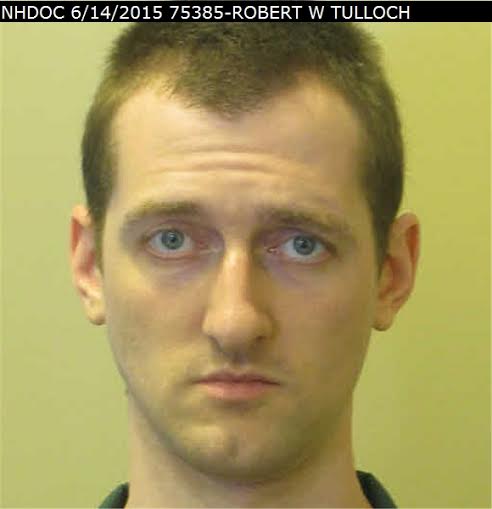By DAMIEN FISHER, InDepthNH.org
The constitutional questions concerning Robert Tulloch’s life sentence without the possibility of parole are formally being transferred to the New Hampshire Supreme Court over objections from prosecutors.
Tulloch was 17 when he and high school friend James Parker, then 16, murdered Dartmouth College professors Half Zantop, 62, and Susanne Zantop, 55 after picking their Etna home at random in the grisly 2001 slayings.
Prosecutors with the New Hampshire Attorney General’s Office wanted Grafton Superior Court Judge Leonard MacLeod to hold a resentencing hearing for Tulloch without the Supreme Court input. But in his interlocutory transfer order, issued this week, MacLeod says the legal and constitutional issues involved in Tulloch’s resentencing are too important.
“Given the stakes of the legal questions presented — for the court, for the judiciary’s reputation, and for every person who is serving or may serve an (life without parole) sentence for an offense committed as a minor — the court must make the most informed possible decision at resentencing,” MacLeod wrote.
Tulloch has been seeking a new sentence for years, arguing that life without parole for minors is unconstitutional. He pleaded guilty after Parker reached an agreement to testify against him. Parker pleaded guilty to second-degree murder for his role in the killings and was sentenced to 25-years to life. Parker was paroled last year.
Parker and Tulloch, then Vermont high school students, bought knives and planned to rob and kill someone, take the money, and flee to Australia. They did not have a specific victim targeted when they began their scheme.
Parker and Tulloch reportedly tried to get into multiple homes before they gained entry into the Zantops’ home by pretending to conduct a survey. They were arrested weeks later in Indiana.
MacLeod’s transfer statement to the Supreme Court seeks answers to questions about the constitutionality of life without parole for minors, as well as questions on how to impose such a sentence.
Under the law as it stands, minors can be sentenced to life without parole after a hearing to decide “permanent incorrigibility.” That is the legal term for when someone lacks the ability to be reformed or change their life for the better.
Tulloch’s lawyers argue that any evidence of “permanent incorrigibility” needs to be proved beyond reasonable doubt. They also want to be able to introduce evidence showing Tulloch’s character changes which reportedly took place since he started his prison sentence.
Prosecutors wanted MacLeod to hold a resentencing hearing first, then allow Tulloch to file an appeal with the Supreme Court. This would mean at least two resentencing hearings in the case, something MacLeod wrote makes little sense.
New Hampshire’s Supreme Court has not yet made any rulings about life without parole sentences for minors, leaving little in the way of legal precedence for MacLeod to use in his considerations. MacLeod wants the Supreme Court to rule on the questions Tulloch raised so that he can follow their guidance in the resentencing.
Prosecutors did not file any proposed appeal statement, despite having the opportunity to do so. That left Macleod to rely on Tulloch’s proposed appeal statement.





